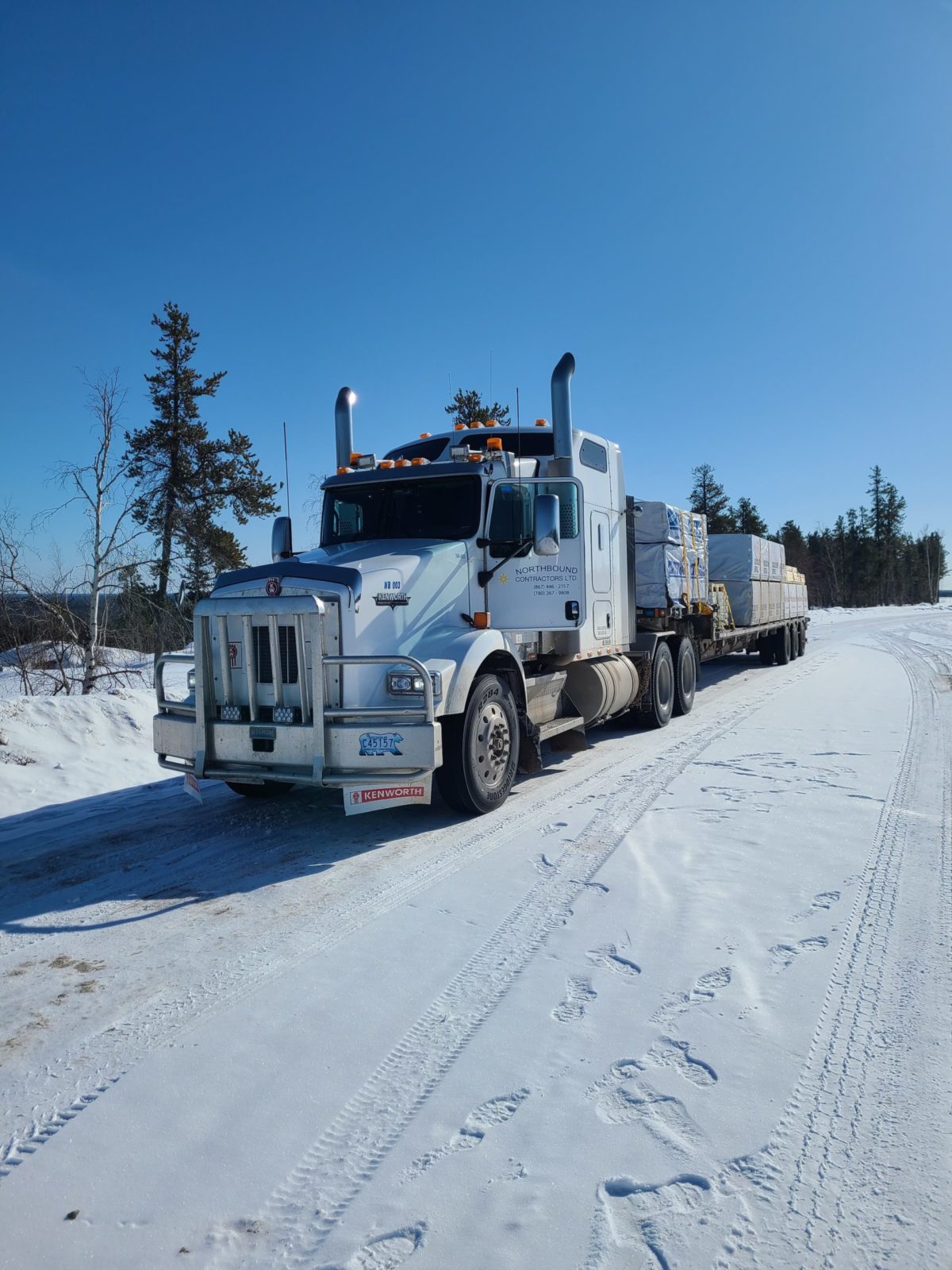Compressed ice road season pushes Norman Wells trucker to the limit
The past year of hauling has been the equivalent of an ice road roller coaster for Wayne Kakfwi.

The early months of the Covid-19 pandemic last spring took away much of his work as a hauler with his small operation Northbound Contractors. He formed the company in 2006 and transports almost anything, except for groceries.
With much of his client base being in Sahtu and Tlicho communities along the ice roads, he was fortunate to have wrapped up the ice road season before the first case of Covid-19 arrived in the NWT on March 21, 2020.
But after that his wheels slowed down.
Slower hauling seasons with Covid
“Covid restrictions really put a damper on my transport company,” he said.
The Norman Wells resident used to base his main Kenworth truck in Edmonton and do trips from there to communities in the NWT and back. He also uses two Ford F-350s and a gooseneck trailer.
In a normal year, he would take more than a dozen trips between the NWT and Edmonton and then at the end of the season, leave his truck in that city and fly back to Norman Wells.
Fewer cross-border trips meant less hauling, and his spring and summer were much quieter than usual.
“It was a scary time and I didn’t want to risk my young family (by getting sick). I stayed here and my truck stayed down there,” he said. “To get all the insurance and registration was too complicated. I have to pay every year and it just wasn’t feasible last summer.”
He kept busy with some construction jobs in Norman Wells for the Department of Environment and Natural Resources, and a couple hauling trips to Hay River to supply barges.
Covid-19 hits home
But the biggest bump in the road came last December when his son Myrine became severely ill with Covid-19 and was hospitalized in the intensive care unit in Edmonton.
“It was unfortunate with my son,” Kakfwi said. “I spent 10 weeks in Edmonton with him. (And then) it all worked out so damn quick. I was ready to get the safety work done on the truck. I put a call out for some clients. The doctor said my son would be moved to another ward where there’s no visiting.”
By late January, his son’s condition began to improve and Kafkwi said he realized he “had to get to work.”
Truck back on the road
“Then I had a load coming out of Edmonton. I drove it to Yellowknife and then Norman Wells and Fort Good Hope and Tulita. That was in February. This year (the season) was about six weeks late.”
The delay has cut his revenue in half for this year, although Kakfwi said his customer base is about “average” compared to pre-pandemic years.
But with a business partner in Yellowknife, he has been able to base his Kenworth in the NWT capital instead of in Edmonton.
“I can do more work here in the spring and summer with my truck here. My bread and butter won’t be landlocked in Alberta,” he said.
He’s also been busy enough that he managed to hire an extra driver and a labourer.
Other factors like high demand in a shorter time frame and good ice road conditions might help him make up for the shortfall.
‘Moving constantly’

“I’ve had no down time. I’m moving constantly,” he said. “There will be a loss but it seems to me I’m gaining now. The roads are excellent this year. There’s no overflow. There are no breakdowns.
“I had to tell people I wasn’t taking on any more. I took a load of 57,000 lbs of lumber from Hay River to Tulita for a gazebo project. And I’m taking some loads to Wekweeti and Whati.”
After a year of highs and lows that rocked his personal and professional life, Kakfwi is looking forward to some down time once the ice roads close in April.
“I’m a real avid hunter and my freezers are empty. I need to get some moose and caribou,” he said. “I can get moose on the islands (of the Mackenzie River) and I can get caribou in the mountains. I love this trucking season but it comes to an end and you get tired and you’re pushing yourself.”

